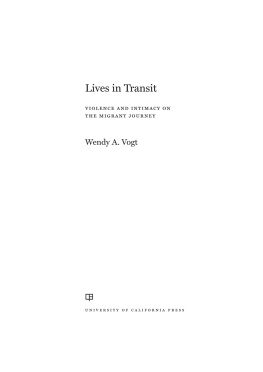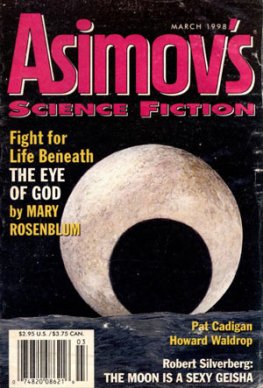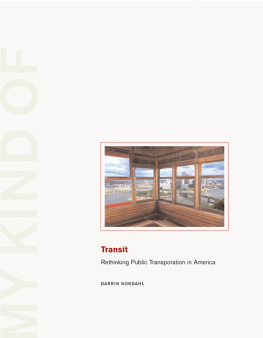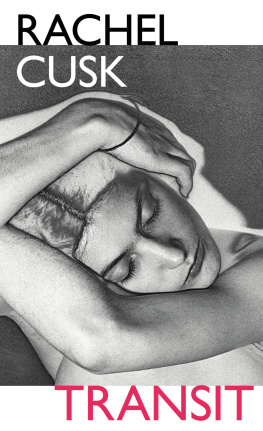CALIFORNIA SERIES IN PUBLIC ANTHROPOLOGY
The California Series in Public Anthropology emphasizes the anthropologists role as an engaged intellectual. It continues anthropologys commitment to being an ethnographic witness, to describing, in human terms, how life is lived beyond the borders of many readers experiences. But it also adds a commitment, through ethnography, to reframing the terms of public debatetransforming received, accepted understandings of social issues with new insights, new framings.
Series Editor: Robert Borofsky (Hawaii Pacific University)
Contributing Editors: Philippe Bourgois (University of Pennsylvania), Paul Farmer (Partners In Health), Alex Hinton (Rutgers University), Carolyn Nordstrom (University of Notre Dame), and Nancy Scheper-Hughes (UC Berkeley)
University of California Press Editor: Naomi Schneider
Twice Dead: Organ Transplants and the Reinvention of Death, by Margaret Lock
Birthing the Nation: Strategies of Palestinian Women in Israel, by Rhoda Ann Kanaaneh (with a foreword by Hanan Ashrawi)
Annihilating Difference: The Anthropology of Genocide, edited by Alexander Laban Hinton (with a foreword by Kenneth Roth)
Pathologies of Power: Health, Human Rights, and the New War on the Poor, by Paul Farmer (with a foreword by Amartya Sen)
Buddha Is Hiding: Refugees, Citizenship, the New America, by Aihwa Ong
Chechnya: Life in a War-Torn Society, by Valery Tishkov (with a foreword by Mikhail S. Gorbachev)
Total Confinement: Madness and Reason in the Maximum Security Prison, by Lorna A. Rhodes
Paradise in Ashes: A Guatemalan Journey of Courage, Terror, and Hope, by Beatriz Manz (with a foreword by Aryeh Neier)
Laughter Out of Place: Race, Class, Violence, and Sexuality in a Rio Shantytown, by Donna M. Goldstein
Shadows of War: Violence, Power, and International Profiteering in the Twenty-First Century, by Carolyn Nordstrom
Why Did They Kill? Cambodia in the Shadow of Genocide, by Alexander Laban Hinton (with a foreword by Robert Jay Lifton)
Yanomami: The Fierce Controversy and What We Can Learn from It, by Robert Borofsky
Why Americas Top Pundits Are Wrong: Anthropologists Talk Back, edited by Catherine Besteman and Hugh Gusterson
Prisoners of Freedom: Human Rights and the African Poor, by Harri Englund
When Bodies Remember: Experiences and Politics of AIDS in South Africa, by Didier Fassin
Global Outlaws: Crime, Money, and Power in the Contemporary World, by Carolyn Nordstrom
Archaeology as Political Action, by Randall H. McGuire
Counting the Dead: The Culture and Politics of Human Rights Activism in Colombia, by Winifred Tate
Transforming Cape Town, by Catherine Besteman
Unimagined Community: Sex, Networks, and AIDS in Uganda and South Africa, by Robert J. Thornton
Righteous Dopefiend, by Philippe Bourgois and Jeff Schonberg
Democratic Insecurities: Violence, Trauma, and Intervention in Haiti, by Erica Caple James
Partner to the Poor: A Paul Farmer Reader, by Paul Farmer, edited by Haun Saussy (with a foreword by Tracy Kidder)
I Did It to Save My Life: Love and Survival in Sierra Leone, by Catherine E. Bolten
My Name Is Jody Williams: A Vermont Girls Winding Path to the Nobel Peace Prize, by Jody Williams
Reimagining Global Health: An Introduction, by Paul Farmer, Jim Yong Kim, Arthur Kleinman, and Matthew Basilico
Fresh Fruit, Broken Bodies: Migrant Farmworkers in the United States, by Seth M. Holmes, PhD, MD
Illegality, Inc.: Clandestine Migration and the Business of Bordering Europe, by Ruben Andersson
To Repair the World: Paul Farmer Speaks to the Next Generation, by Paul Farmer
Blind Spot: How Neoliberalism Infiltrated Global Health, by Salmaan Keshavjee (with a foreword by Paul Farmer)
Driving after Class: Anxious Times in an American Suburb, by Rachel Heiman
The Spectacular Favela: Violence in Modern Brazil, by Erika Robb Larkins
When I Wear My Alligator Boots: Narco-Culture in the U.S. Mexico Borderlands, by Shaylih Muehlmann
Jornalero: Being a Day Laborer in the USA, by Juan Thomas Ordez
A Passion for Society: How We Think about Human Suffering, by Iain Wilkinson and Arthur Kleinman
The Land of Open Graves: Living and Dying on the Migrant Trail, by Jason De Len (with photographs by Michael Wells)
Living with Difference: How to Build Community in a Divided World, by Adam Seligman, Rahel Wasserfall, and David Montgomery
Scratching Out a Living: Latinos, Race, and Work in the Deep South. by Angela Stuesse
Returned: Going and Coming in an Age of Deportation, by Deborah A. Boehm
They Leave Their Kidneys in the Fields: Injury, Illness, and Illegality among U.S. Farmworkers, by Sarah Bronwen Horton
Threshold: Emergency Responders on the U.S.-Mexico Border, by Ieva Jusionyte
Lives in Transit: Violence and Intimacy on the Migrant Journey, by Wendy A. Vogt
Lives in Transit
VIOLENCE AND INTIMACY ON THE MIGRANT JOURNEY
Wendy A. Vogt

UNIVERSITY OF CALIFORNIA PRESS
University of California Press, one of the most distinguished university presses in the United States, enriches lives around the world by advancing scholarship in the humanities, social sciences, and natural sciences. Its activities are supported by the UC Press Foundation and by philanthropic contributions from individuals and institutions. For more information, visit www.ucpress.edu.
University of California Press
Oakland, California
2018 by The Regents of the University of California
Library of Congress Cataloging-in-Publication Data
Names: Vogt, Wendy A., author.
Title: Lives in transit : violence and intimacy on the migrant journey/Wendy A. Vogt.
Description: Oakland, California : University of California Press, [2018] | Series: California series in public anthropology ; 42 | Includes bibliographical references and index. |
Identifiers: LCCN 2018016212 (print) | LCCN 2018019795 (ebook) | ISBN 9780520970625 (eBook) | ISBN 9780520298545 (cloth : alk. paper) | ISBN 9780520298552 (pbk. : alk. paper)
Subjects: LCSH: ImmigrantsViolence againstMexico. | ImmigrantsAbuse ofMexico. | ImmigrantsServices for. | Central AmericansMexico.
Classification: LCC HV 6250.4. E 75 (ebook) | LCC HV 6250.4. E 75 V 64 2018 (print) | DDC 362.88086/9120972dc23
LC record available at https://lccn.loc.gov/2018016212
Manufactured in the United States of America
25 24 23 22 21 20 19 18
10 9 8 7 6 5 4 3 2 1
For my family
and for migrants everywhere
Contents
Illustrations
MAP
FIGURE
Acknowledgments
This book is dedicated to the migrants, shelter workers, priests, activists, and local community members who shared their lives and their stories with me. It has been the privilege of my life to witness and work alongside you as you struggled to cross borders, support your families, and speak truth to power. I am particularly humbled and inspired by the work of everyday people who in big ways and small choose love over hate and justice over profit. For reasons of confidentiality I am not able to mention the people who fill these pages by their real names, but it is my hope this work contributes in some way to ongoing and collective struggles for rights and justice.
The School of Anthropology at the University of Arizona was a wonderful place to be a graduate student. In Tucson, I cultivated rich and meaningful relationships with my mentors, peers, and friends. Through her example, my advisor Linda Green taught me the power of critical and politically engaged research, and I am forever grateful for her unwavering support, guidance, and friendship. I thank Thomas Sheridan and Laura Briggs for their sharp insights and enthusiasm. I am also indebted to Linda and Laura for showing me that academic motherhood is not just possible but comes with many rewards. I also thank Ana Alonso, Diane Austin, Bill Beezley, James Greenberg, Eithne Luibhid, Norma Mendoza-Denton, Lydia Otero, Barnet Pavao-Zuckerman, Jennifer Roth-Gordon, and Drexel Woodson, at the University of Arizona. My fellow UA alums continue to be a wonderfully rich source of inspiration and friendship, and I love connecting with you all at conferences and visits. For their input and support on this project, I especially want to thank Brian Burke, Jacob Campbell, Daniela Diamente, Heide Castaeda, Karin Friederic, Natalia Martnez Tagea, Nick Rattray, Robin Reineke, Rodrigo Rentera Valencia, Andrea Rickard, Jeremy Slack, and Joanna Stone. Special thanks also to my friends Jennifer Josten, Gabrielle Civil, Nick Kawa, and the Alkov, Ricchiuto, and Rubin families. Extra special thanks to my bestie Sarah Rubin, who has been on this anthropology journey with me since our days in Kroeber Hall.








